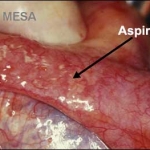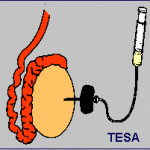Articles tagged with: IVF procedure
Artificial insemination, IVF procedure »
Conventional or standard IVF treatment involves the administration of fertility drugs, monitoring of the cycle, collection of eggs, mixing eggs and sperm together outside the woman’s body in a culture dish or test-tube. Any resulting embryos are left to grow and the best 2-3 embryos are then transferred into the woman’s womb. Any remaining embryos of good quality may then be frozen for future use. In the United Kingdom a maximum of three embryos are replaced.
IVF cycle. The diagram below summarises the IVF cycle.
The original indication for IVF was tubal …
Artificial insemination, GIFT procedure »
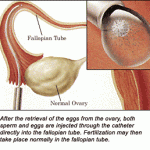
In patients undergoing the gamete intra-Fallopian transfer (GIFT) procedure, a prospective study was perfonned to establish the predictive value of attempting in-vitro fertilization (IVF) using extra oocytes obtained at laparoscopy and also the value of transferring the resulting embryo(s), in conjunction with GIFT, in the same treatment cyde. The GIFT procedure was performed in 50 treatment cycles involving 43 patients, of whom 20 have achieved clinical pregnancy with an overall success rate of 40% per treatment cycle. In 38 of these patients, one or more extra oocytes were available and …
Artificial insemination, Headline, ICSI procedure »
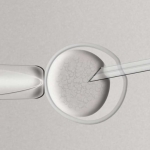
Intracytoplasmic Sperm Injection (ICSI) is performed as part of an IVF procedure to treat male factor abnormalities. After egg retrieval, using a glass needle, a single sperm is selected by and injected into the egg. This often enhances fertilization to help couples conceive when the man has low sperm concentration, motility, or abnormal shapes. The Follas Center of Reproductive Medicine, our adjacent office-based facility, has state-of-the-art equipment to offer this option to our patients undergoing IVF.
Intracytoplasmic sperm injection, or ICSI, is a form of micro-assisted fertilization where the nucleus (genetic …
Artificial insemination, ICSI procedure »
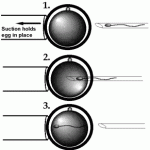
Any IVF (in vitro fertilization) treatment procedure carries risks. ICSI (intra-cytoplasmic sperm injection), being a very delicate and difficult IVF procedure, does carry an even higher risk of failure. Normally during an IVF treatment programme the males sperm are subjected to rigorous procedures to establish their maturity and suitability for the procedure. In an ICSI procedure, because the number of viable sperm available can be so low they are not subjected to a rigorous programme of testing. The risk of an abnormal sperm being injected into the ovum is, therefore, …
Artificial insemination, IVF procedure »
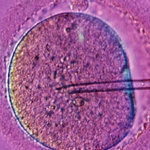
IVF (In Vitro Fertilisation) is an Assisted Reproductive Technology used to help couples conceive. If you have undergone hormonal therapies and artificial insemination without any success in conceiving, then IVF might be for you. To date, IVF is the most popular of all assisted reproductive technologies available.
IVF is the process of creating a fertilised female egg in a laboratory. It involves extracting an egg from the female and sperm from the male, and then placing them together in a lab dish to enhance the chances of fertilisation. If the egg …
